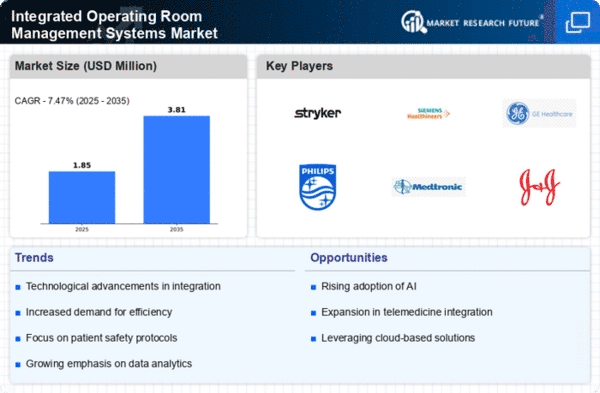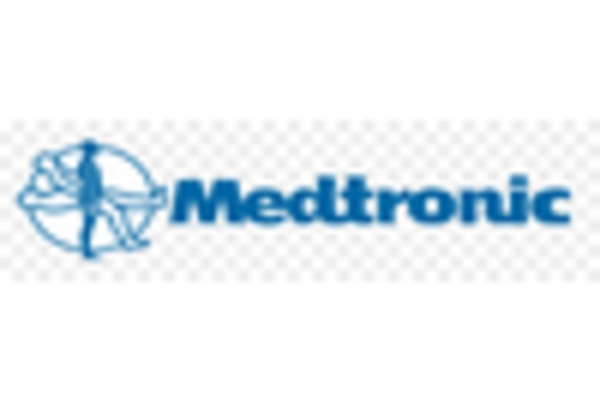Market Trends
Key Emerging Trends in the Integrated Operating Room Management Systems Market
The market trends of Integrated Operating Room Management Systems (IORMS) are indicative of a dynamic healthcare landscape embracing advanced technology to enhance patient care and surgical efficiency. These systems, comprising hardware and software solutions, facilitate seamless integration of various devices and data streams within operating rooms, leading to improved surgical outcomes and workflow optimization.
One prominent trend driving the growth of the IORMS market is the increasing demand for minimally invasive surgeries (MIS). As healthcare providers and patients alike recognize the benefits of MIS, such as reduced recovery times and lower risk of complications, there's a growing need for advanced technological solutions that support these procedures. Integrated operating room management systems play a pivotal role in enabling MIS by providing real-time imaging, data visualization, and precision instruments, thus fueling their adoption.
Moreover, the emphasis on patient safety and infection control has become paramount, particularly in the wake of the COVID-19 pandemic. Integrated operating room management systems offer features like touchless control interfaces, sterile operating environments, and enhanced communication tools, aligning with the heightened focus on infection prevention protocols. This trend is expected to drive the implementation of IORMS across healthcare facilities worldwide, ensuring safer surgical practices and better infection control measures.
Furthermore, the integration of artificial intelligence (AI) and machine learning (ML) capabilities into operating room management systems is gaining traction. These technologies empower IORMS to analyze vast amounts of surgical data, assist in decision-making processes, and even predict potential complications during surgeries. By harnessing AI and ML algorithms, healthcare providers can optimize surgical workflows, personalize patient care, and improve overall surgical efficiency, thereby driving the adoption of integrated operating room management systems.
Additionally, interoperability has emerged as a significant trend shaping the IORMS market landscape. With healthcare institutions utilizing diverse medical devices and systems from multiple vendors, the seamless integration and interoperability of these technologies have become imperative. Integrated operating room management systems offer interoperable solutions that enable seamless communication and data exchange between various devices and software platforms, enhancing the overall efficiency and functionality of operating rooms.
Furthermore, the shift towards value-based care models and the emphasis on cost containment in healthcare have propelled healthcare providers to seek solutions that optimize resource utilization and streamline operational workflows. Integrated operating room management systems offer functionalities such as inventory management, equipment tracking, and resource scheduling, enabling healthcare facilities to optimize resource allocation, reduce waste, and improve overall operational efficiency, thus aligning with the objectives of value-based care initiatives.


















Leave a Comment